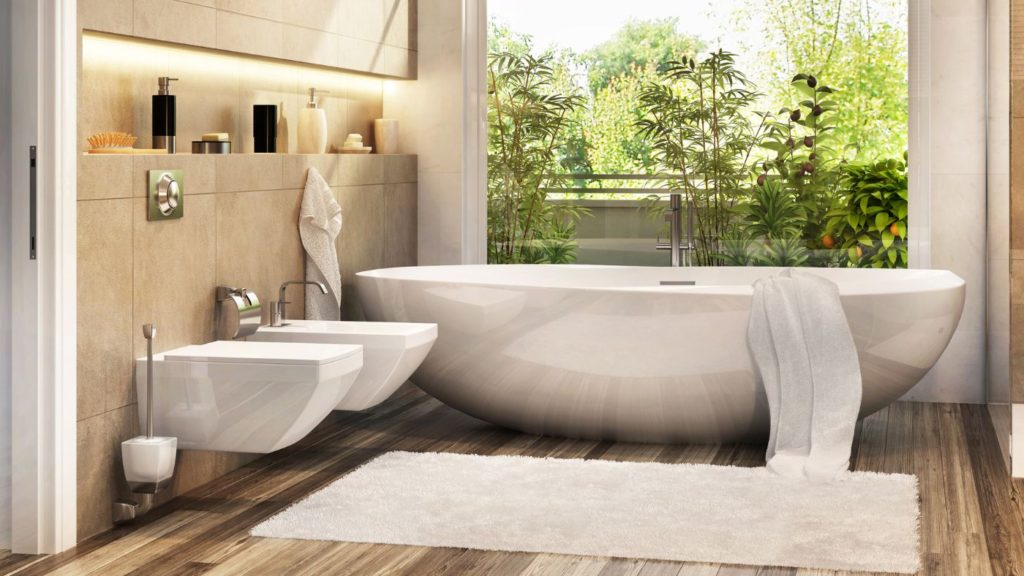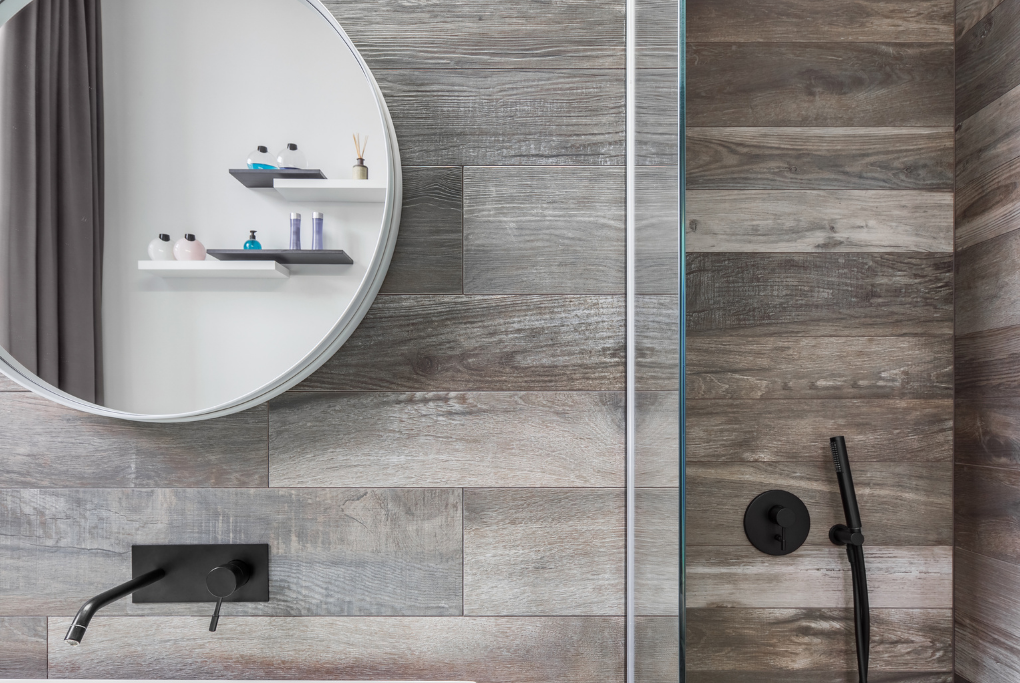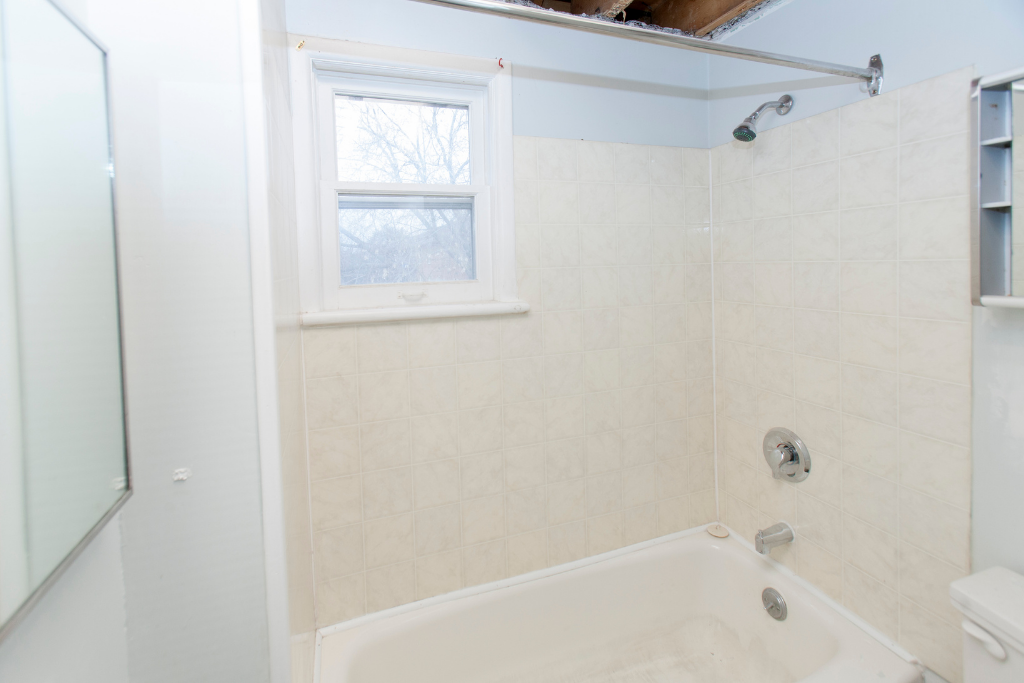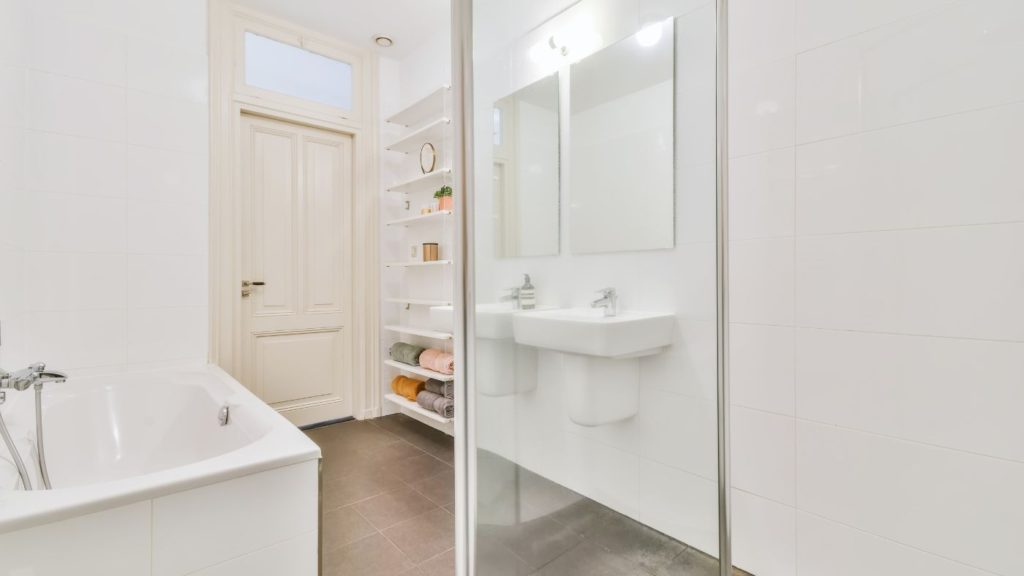When it comes to creating the ideal bathroom space, one often overlooked but crucial element is the flooring.
The perfect bathroom flooring can not only enhance the aesthetics of the room but also provide practical benefits in terms of safety, durability, and maintenance.
In this comprehensive guide, we will walk you through various bathroom flooring options and help you choose the one that best suits your needs and preferences.
Table of Contents
Tile Flooring: Timeless Elegance
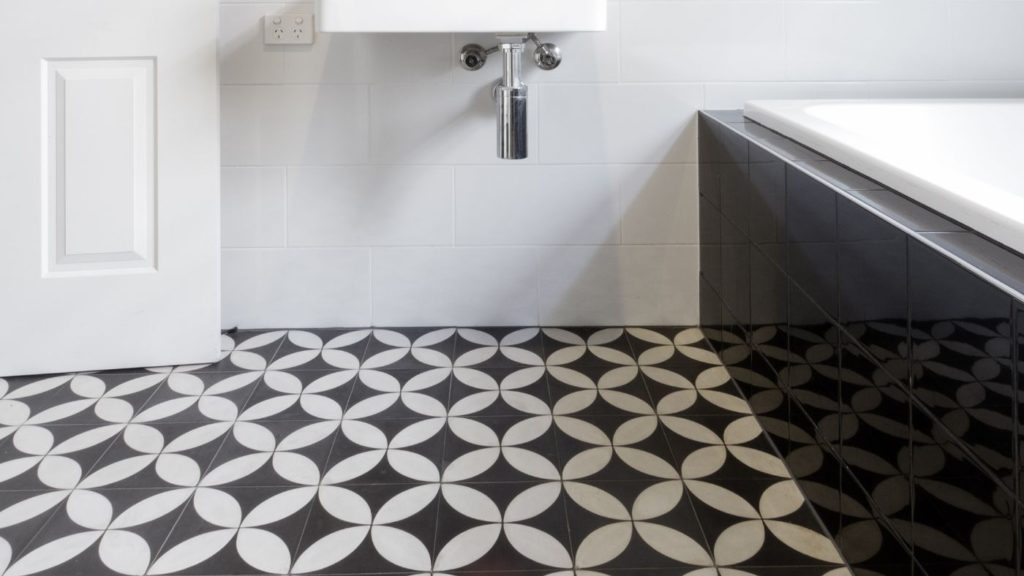
Tile flooring has stood the test of time for good reason. It is a versatile and elegant choice for any bathroom, available in sizes ranging from 12×12 to 18×18 inches. Whether you opt for ceramic or porcelain tiles, you’ll find that they offer numerous advantages.
They are highly water-resistant, durable, and come in various colors and styles to match any decor. These tiles provide a classic, timeless look to your bathroom, making it aesthetically pleasing.
However, they can be cold to the touch, and professional installation might be necessary.
Pros: Highly water-resistant, durable, and available in various colors and styles.
Cons: Cold to the touch, may require professional installation.
Luxury Vinyl Flooring: Beauty and Resilience
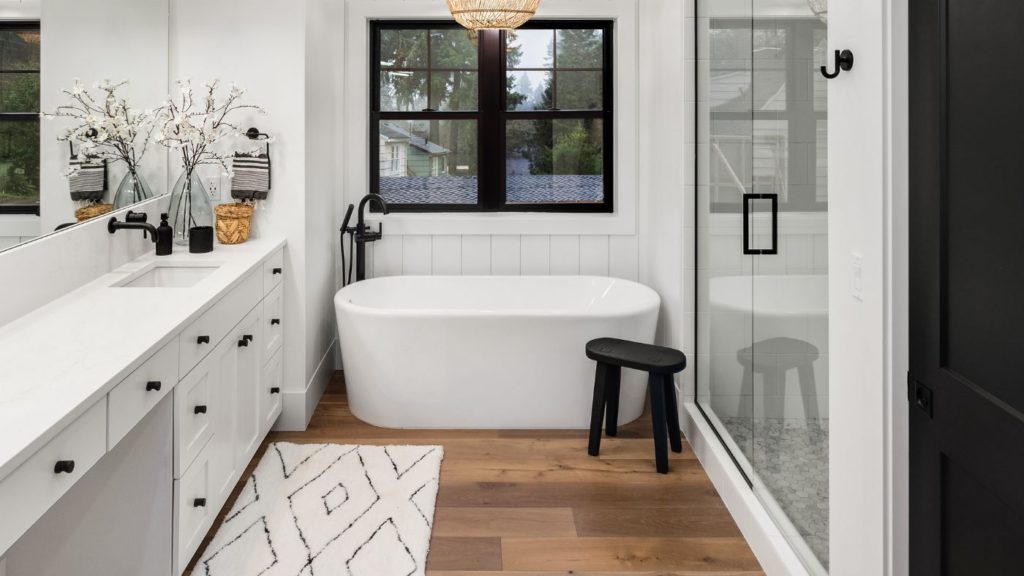
For those seeking the perfect blend of style, comfort, and durability, luxury vinyl flooring is an excellent option, available in a variety of designs. It’s a waterproof, budget-friendly choice that’s easy to install.
Luxury vinyl comes in designs that mimic the look of natural stone, wood, and more. Luxury vinyl is water-resistant and stands up well to moisture, which is a crucial factor in bathrooms. It’s also softer underfoot compared to tile, providing a more comfortable experience.
With proper installation, luxury vinyl can last for many years.
Pros: Waterproof, budget-friendly, easy to install, and comes in a variety of designs.
Cons: Some types can be less durable, may not be as aesthetically pleasing as other options
Natural Stone: Timeless Luxury
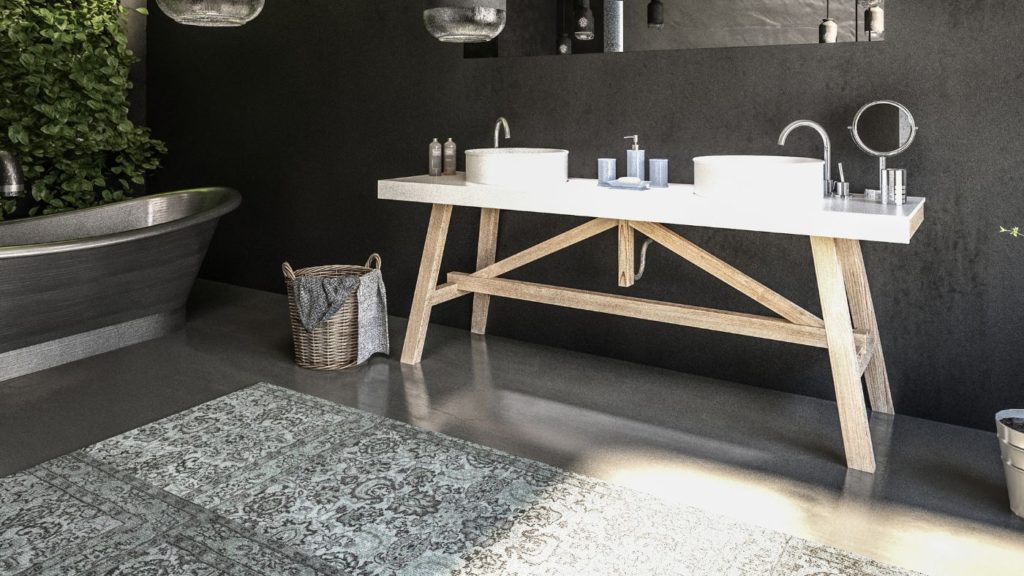
For those looking for a touch of luxury, natural stone is an excellent choice.
Natural stone offers a luxurious look and is highly durable and long-lasting. However, it requires regular maintenance, including sealing to prevent stains and damage. It can be relatively expensive, and it’s worth noting that natural stone may become slippery when wet, so it’s essential to use appropriate rugs or mats to enhance safety.
Pros: Luxurious look, durable, and long-lasting.
Cons: Requires regular maintenance, can be expensive, and may be slippery when wet.
Laminate Flooring: Affordable and Stylish
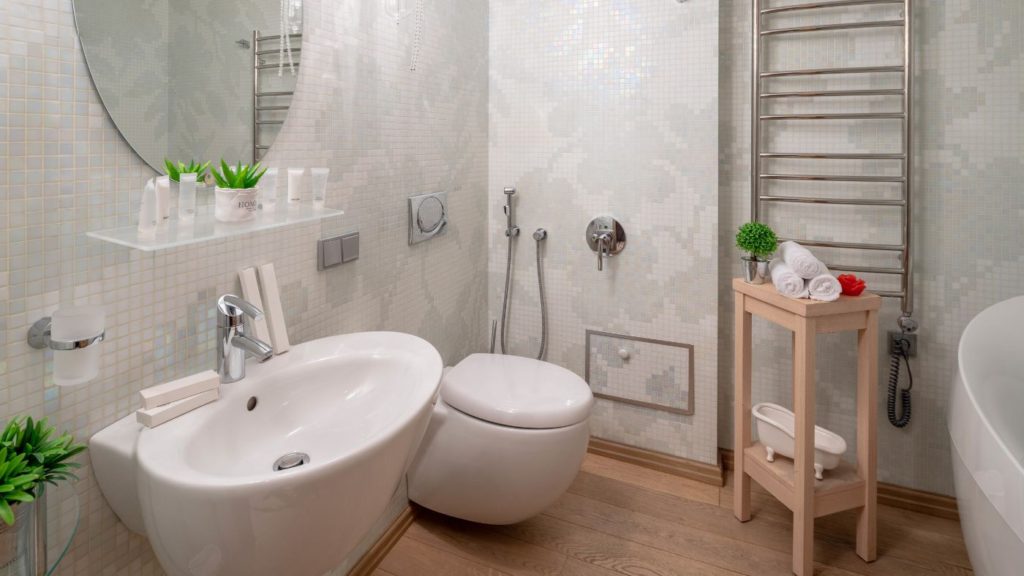
Laminate flooring offers an affordable and stylish alternative for bathroom flooring. It is available in various designs, including options that mimic the look of hardwood and tile.
Laminate is resistant to moisture when properly installed, making it a cost-effective solution for bathroom remodeling.
However, laminate can be damaged by standing water, so it’s essential to maintain a dry bathroom environment. It may not last as long as some other options, but its affordability and versatility make it a popular choice.
Pros: Resistant to moisture when properly installed, cost-effective, and available in different finishes.
Cons: Can be damaged by standing water, may not last as long as other options.
Engineered Wood: A Balance of Beauty and Durability
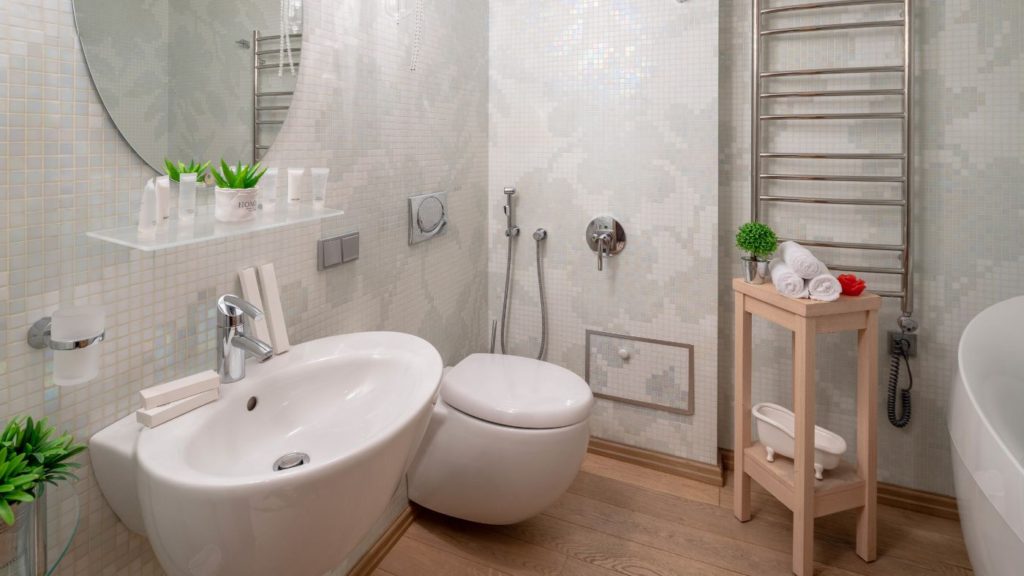
Engineered wood is an option that offers a wood-like appearance while being more water-resistant than solid hardwood. It is stable in high humidity environments, making it a suitable choice for bathrooms. However, it can be costly, may require professional installation, and can still be damaged by prolonged exposure to moisture.
Proper maintenance and quick cleanup of spills are essential to preserve the integrity of engineered wood flooring.
Pros: Offers a wood-like appearance, more water-resistant than solid hardwood, and stable in high humidity.
Cons: Can be costly, may require professional installation, and can still be damaged by prolonged exposure to moisture.
Cork Flooring: Eco-Friendly Comfort
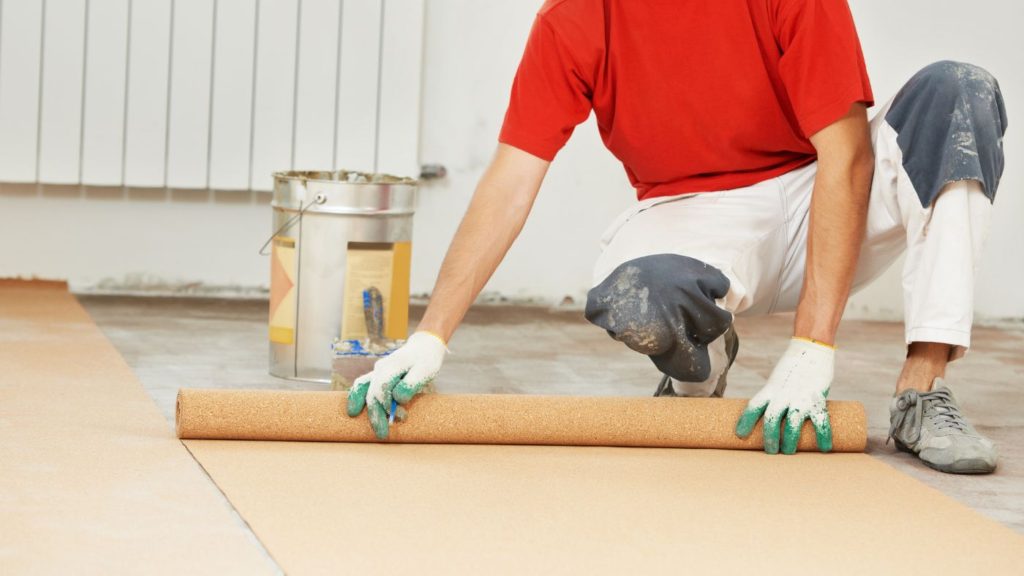
For those who prioritize environmental friendliness and comfort, cork flooring is a unique option. It’s comfortable underfoot, making it a pleasant choice for a bathroom. When properly sealed, it’s water-resistant.
However, it’s not as durable as some other options and may require resealing over time to maintain its water resistance and integrity.
Pros: Environmentally friendly, comfortable underfoot, and water-resistant when properly sealed.
Cons: Not as durable as some other options, may require resealing over time.
When choosing your bathroom flooring, consider the following factors:
- Moisture Resistance: Bathrooms are humid environments, so opt for materials that can handle moisture without warping or deteriorating.
- Durability: Look for flooring that can withstand daily wear and tear, as well as cleaning agents.
- Maintenance: Consider the level of maintenance required to keep the floor in good condition.
- Style: Choose a flooring material that complements your bathroom’s aesthetics and your personal taste.
- Budget: Your budget will influence your choice. Some materials are more expensive than others.
- Installation: Some flooring options may require professional installation, so factor in installation costs.
- Safety: Ensure the flooring has a non-slip surface to prevent accidents, especially in wet conditions.
Conclusion
In conclusion, choosing the perfect bathroom flooring is a decision that should not be taken lightly. Each type of flooring material has its advantages and disadvantages, and the best choice for you will depend on your specific needs and preferences. Whether you prioritize elegance, durability, affordability, or safety, there is a bathroom flooring option that will meet your requirements.
Remember that proper installation, maintenance, and considering your specific bathroom conditions are key to ensuring the longevity and performance of your chosen flooring material.

